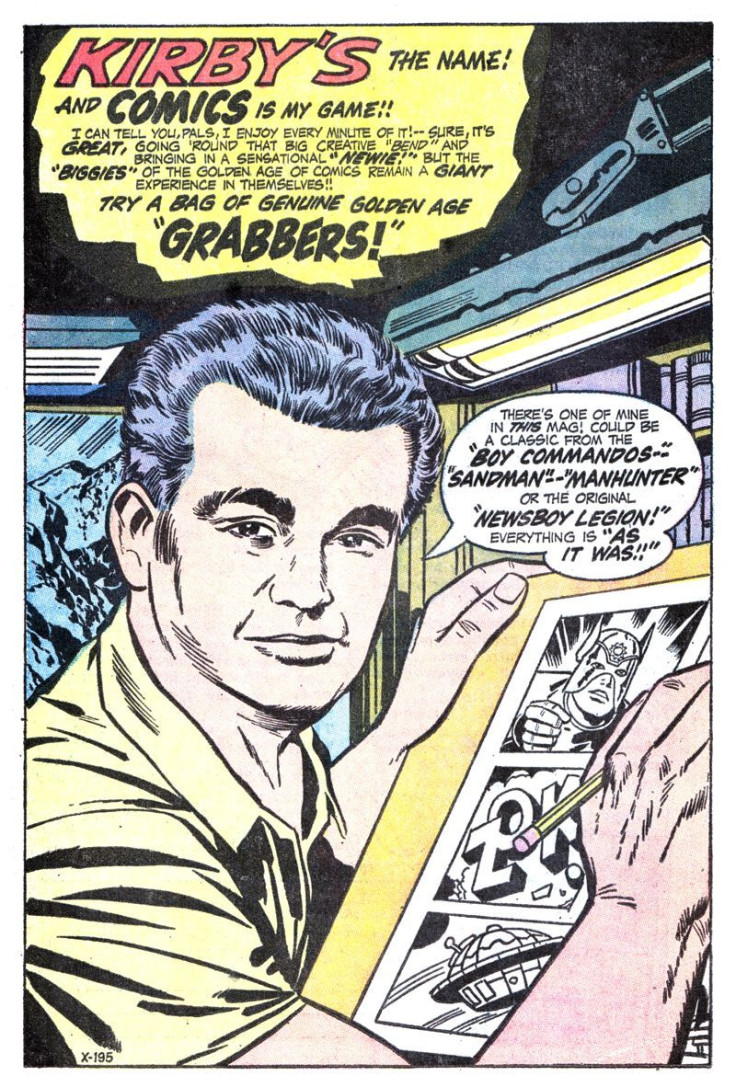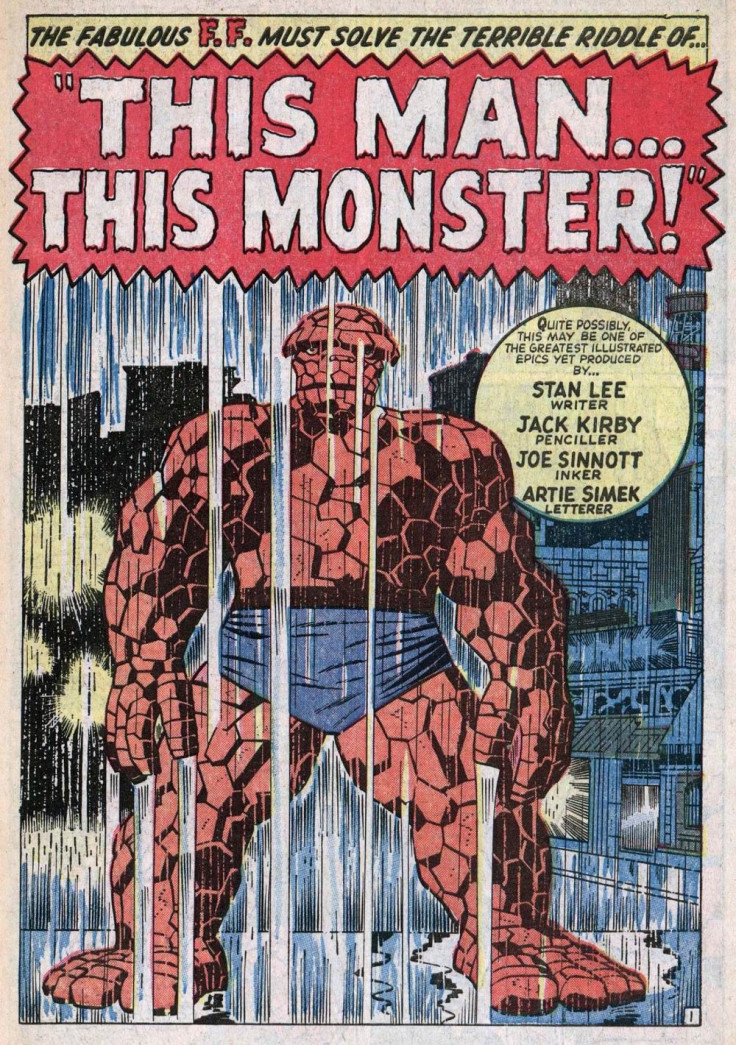All across the internet, blogs and tabloids are celebrating the creative force that was Jack Kirby. The mind behind some of the biggest comic book franchises ever, like The Fantastic Four, X-Men, Captain America, and The Hulk passed in 1994, and would have turned 100 today. Rob Liefeld, in a post on Comicbook.com, wrote: “Jack Kirby is the single most important figure, the greatest singular talent that the comic book world has ever experienced.”
Kirby’s influence can be felt whenever you watch a Marvel movie, like Thor: Ragnarok, in the crazy costume designs, elaborate sets, or the whirling space particles that Kirby pioneered creating unknown realities like the Negative Zone.
My dad helped me become one of Kirby’s biggest fans. My father grew up in the counterculture of the 1960’s, marching in Vietnam War protests, attending NYU and consuming as many Golden Age comics as he could find. He’d boast that he used to have a massive collection of Kirby comics, until my grandma threw them away after he went away to college. In the notes and letters he’d send to friends, my dad would refer to himself as Galactus. I realize that choosing to nickname yourself after a character whose origins stem from Stan Lee’s desire to see the Fantastic Four “fight god” might seem a little egotistical, but I choose to remember it fondly.
My father was a recluse judge/college professor, locking himself in his library for days at a time grading term papers or deciding the fates of stranger’s lives. Kirby had a similar workaholic mentality, spending most of his days hunched over a wooden drawing easel, finishing the pages he promised to get to Marvel on time. According to Mark Evanier’s biography, Kirby: King Of Comics, Kirby would sometimes spend 16 hours a day, away from his wife and children, chomping on a fat cigar and drawing the most beautiful artwork you’ve ever seen. Just imagine the glorious Black Bolt and his Inhuman crew, the New Gods and Apokolips, all being created out of passion in seclusion.
In a desperate attempt to try and connect more with my dad, I read every Kirby comic I could find. I remember going to Barnes & Noble with him, sitting cross-legged across from the rows of comics in the graphic novel sections, looking over Captain America and Namor anthologies. I rarely read the words, choosing to ignore Lee’s lettering and focusing on what story I thought Kirby was trying to tell. Stories were created with the Marvel Method, where Lee pitched a story and wrote the word balloons, and the artist had to do everything else (which is still one of the biggest abuses of creative power I’ve ever seen).
On the ride back home, I’d rant to my dad about what I created in my head. The epic fights between Namor and the Fantastic Four and the Red Skull and Captain America took on a whole new meaning when a middle schooler told the story. I’d be lying if my dad ever really seemed to listen, he always seemed to be thinking about work or some bill he had to pay. Even if he was humoring me, I still think back fondly on those afternoon drives.
For years, I’d convinced myself that Kirby was some form of creative idol and that Lee was the literal devil, because my father told me so. He felt Kirby wasn’t given his rightful credit by Marvel (which he wasn’t) and that it was all Lee’s fault. In middle school, I had made a pact with a fellow dweeb to tap dance on Lee’s grave after his passing, not yet realizing that dancing on someone’s grave is incredibly offensive and more of a metaphor than an actual call to action.

When I went away to college, my dorm was blocks away from Kirby’s original tenement home on Essex Street in the Lower East Side. I would sometimes sit outside, writing in a notebook all the weird stuff I saw, hoping to channel just a drop of Kirby’s creative juices. Though I never saw inspiration behind the nebulous cosmos or a superhero showdown, I did catch a glimpse of the NYC insanity that must have inspired the King. My personal favorite was a man riding on a bicycle with a chinchilla on each shoulder. Without stopping, he opened up his jacket, pulled out a third chinchilla and stuffed number two back into his coat. It was no Yancy Street gang scuffle.
My father passed away four years ago from a heart attack stemming from his workaholic, stressful lifestyle. Kirby passed away around the same age from congestive heart failure, after years of under-appreciation within a medium he helped create. It’s impossible for me to look at the two without seeing the similarities. Two old, nebbishy Jews from New York who let their work control their entire lives, choosing to forgo family and relationships to create something amazing. Kirby’s work helped me connect with my dad, allowing me a glimpse of what went on behind his grey mustache and prescription glasses. It taught me that if you’re willing to destroy yourself, you can make great work, but is it really worth it when you aren’t around to enjoy it?


















